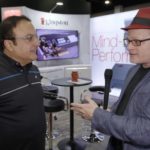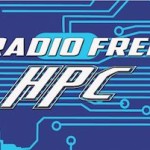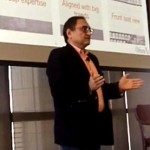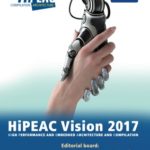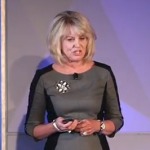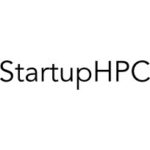Today Optalysys announced the formation of its first Scientific Advisory Board (SAB) comprising experts in AI/machine learning, bioinformatics/genomics and optical pattern recognition. The inaugural SAB members include Professor Douglas Kell of The University of Manchester, Professor Timothy Wilkinson of University of Cambridge and ex-senior NASA scientist, Dr. Richard Juday. “Collectively, these experts have deep knowledge in areas most critical to our long-term success,” said Dr. Nick New, founder and director, Optalysys. “We’re excited to work closely with them through the process of bringing to market our unique optical approach to super-fast, low-power computing to enable more tech innovators and scientists to create a better world.”
Kingston NVMe Technologies Speed Up HPC at SC17
In this video from SC17 in Denver, Rich Kanadjian from Kingston describes the company’s wide array server memory and NVMe PCIe Flash solutions for HPC. “Today’s supercomputing installations are capable of doing billions of calculations per second and managing data in enormous volume and velocity. Kingston continues to provide top data solutions with reliability and predictable performance for the world’s most powerful HPC and enterprise big data applications, while also laying the groundwork for future innovation in data center efficiency.”
Radio Free HPC Previews the SC17 Plenary on Smart Cities
In this podcast, the Radio Free HPC team looks at Smart Cities. As the featured topic this year at the SC17 Plenary, the Smart Cities initiative looks to improve the quality of life for residents using urban informatics and other technologies to improve the efficiency of services.
Shahin Khan Presents: Hot Technology Topics in 2017
Shahin Khan from OrionX presented this talk at the Stanford HPC Conference. “From BitCoins and AltCoins to Design Thinking, Autonomous tech and the changing nature of jobs, IoT and cyber risk, and the impact of application architecture on cloud computing, we’ll touch on some of the hottest technologies in 2017 that are changing the world and how HPC will be the engine that drives it.”
HiPEAC Vision Report Advocates Reinvention of Computing
“Computers as we know them are disappearing from view,’ asserts Koen De Bosschere, Professor at the Engineering Faculty of Ghent University, Belgium, and Coordinator of the HiPEAC network. “The evolution from desktop PC will not stop at smartphone and tablet: the devices and systems that will allow us to automate key infrastructures, such as transport, power grids and monitoring of medical conditions, are bringing us into the age of artificial intelligence. This does not mean man-sized robots, but smart devices that we program and then interact with, such as intelligent personal assistants and self-driving vehicles.”
Podcast: Intel Doubles Down on Artificial Intelligence
In this Chip Chat podcast, Diane Bryant, EVP/GM for the Data Center Group at Intel, discusses how the company is driving the future of artificial intelligence by delivering breakthrough performance from best-in-class silicon, democratizing access to technology, and fostering beneficial uses of AI. Bryant also outlines her vision for AI’s ability to fundamentally transform the way businesses operate and people engage with the world. In a blog Krzanich said: “Intel is uniquely capable of enabling and accelerating the promise of AI. Intel is committed to AI and is making major investments in technology and developer resources to advance AI for business and society.”
Radio Free HPC Year End Review of 2016 Predictions
In this podcast, the Radio Free HPC team looks at how Shahin Khan fared with his OrionX 2016 Technology Issues and Predictions. “Here at OrionX.net, we are fortunate to work with tech leaders across several industries and geographies, serving markets in Mobile, Social, Cloud, and Big Data (including Analytics, Cognitive Computing, IoT, Machine Learning, Semantic Web, etc.), and focused on pretty much every part of the “stack”, from chips to apps and everything in between. Doing this for several years has given us a privileged perspective. We spent some time to discuss what we are seeing and to capture some of the trends in this blog.”
Kx Streaming Analytics Crunches 1.2 Billion NYC Taxi Data Points using Intel Xeon Phi
“The complexity and high costs of architecting and maintaining streaming analytics solutions often make it difficult to get new projects off the ground. That’s part of the reason Kx, a leading provider of high-volume, high-performance databases and real-time analytics solutions, is always interested in exploring how new technologies may help it push streaming analytics performance and efficiency boundaries. The Intel Xeon Phi processor is a case in point. At SC16 in Salt Lake City, Kx used a 1.2 billion record database of New York City taxi cab ride data to demonstrate what the Intel Xeon Phi processor could mean to distributed big data processing. And the potential cost/performance implications were quite promising.”
BSC Collaborates with OpenFog Consortium
“To reinforce and continue with our pioneering work on fog computing that started in 2008, we pursue synergies between leading technology companies and academic and scientific community,” said Mario Nemirovsky, Network Processors Manager at BSC. “By collaborating with the OpenFog Consortium, we will be able to contribute to the consolidation of an IoT platform for the interoperability for consumers, business, industry and research. We are looking forward to a constructive and fruitful collaborations with all OpenFog members.”
StartupHPC at SC16 Announces Keynote Speakers
The StartupHPC Conference has announced their keynotes speakers for their upcoming meeting at SC16. Now in its third year, the event takes place Nov. 13 at the Grand America in Salt Lake City. “StartupHPC-16 speakers represent a very distinguised group of experts the combine entrepreneurship, technology depth, and market insight.”


